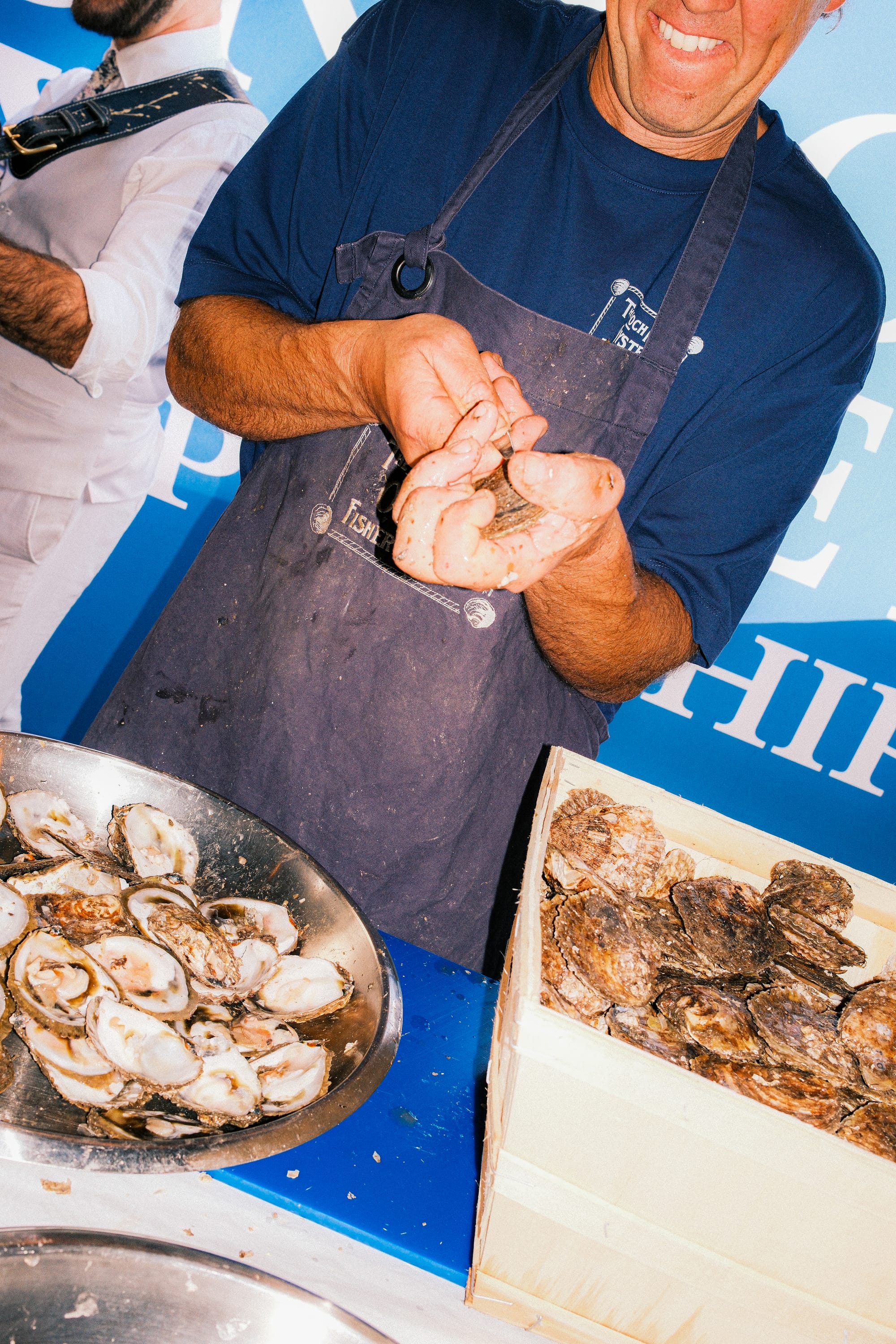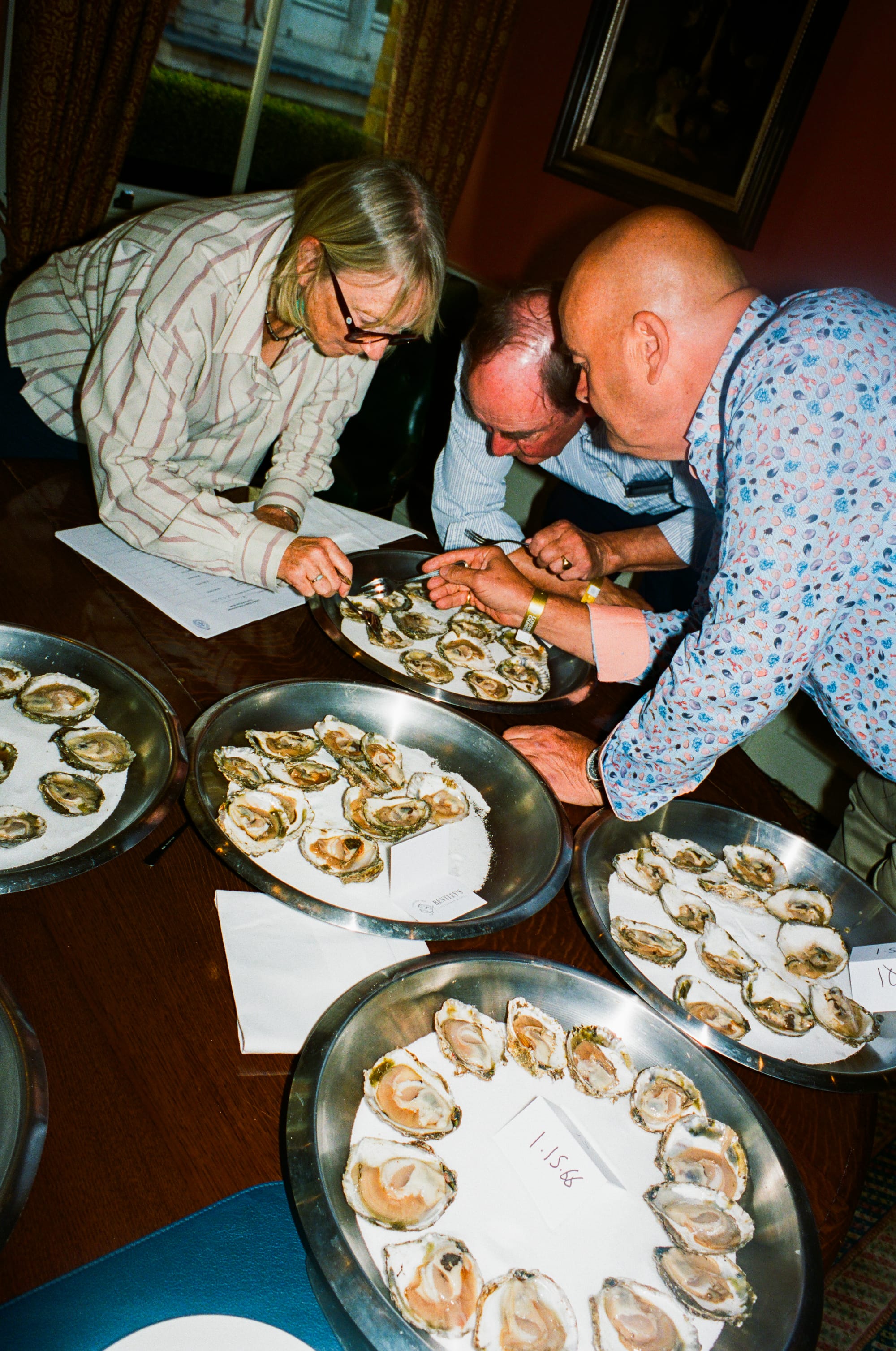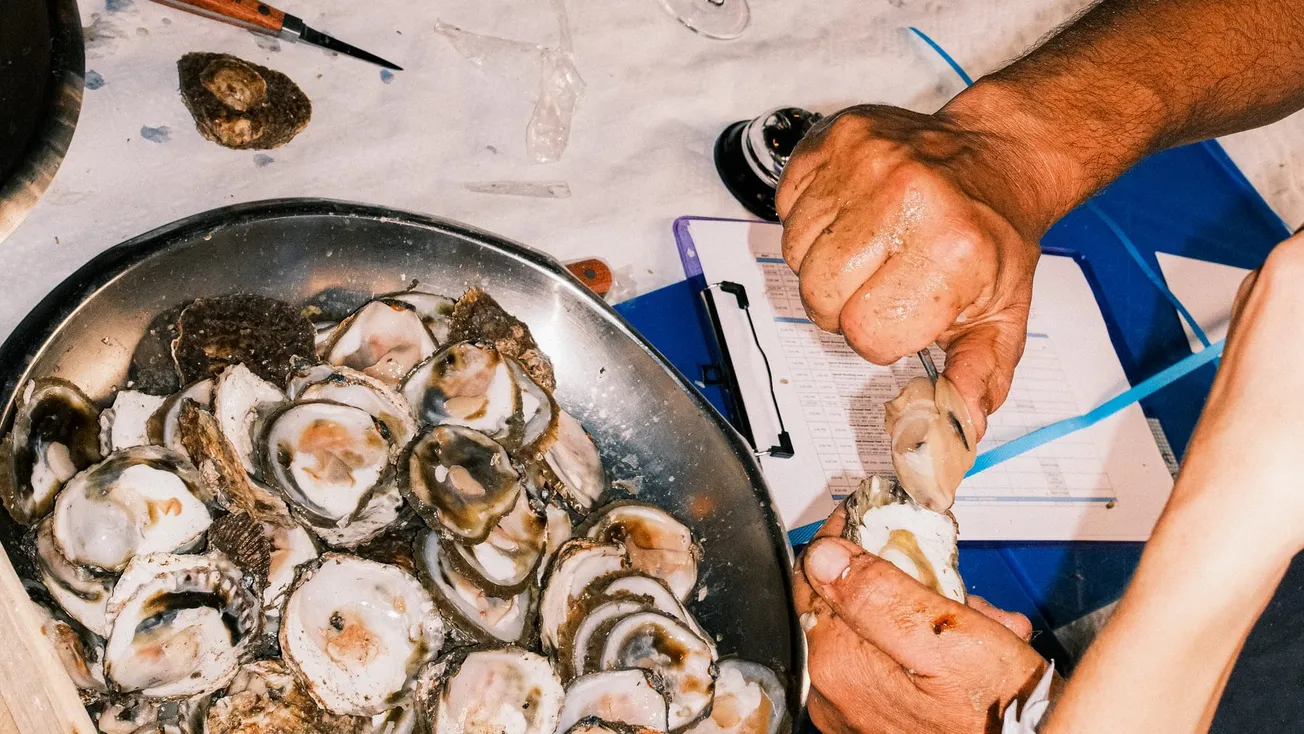To read all of today's dispatch on the bivalve ball, you'll have to be a paying supporter of The Londoner. The good news? We're giving you 50% off your subscription for your first three months — just £4.95 a month. Becoming a member means you're at the forefront of a new media movement, as well as coming with loads of practical perks, such gaining access to all of our members-only content and getting invites to our members-only events. Act fast though, it can't stay forever.
It takes a Native oyster around five years to mature into adulthood. It takes the reigning oyster opening world champion Renars Purmalis around 2 minutes 30 to shuck his set. And it takes me around a couple of seconds, give or take, to tip one down my throat.
I’m necking oysters in a stifling gazebo outside Bentley’s Oyster Bar & Grill to celebrate the third annual London Oyster Championships, and things are, to put it mildly, hectic. For the past week it has felt definitively autumnal, a note of melancholy in the slight chill, but today it is a frenzied, sweat-slicked 26 degrees, the Mayfair air stiff with cigar smoke. Everybody I speak to tells me it’s the final gasp of summer, and there is an accompanying atmosphere of what can only be described as an elegiac hedonism.
Men in button downs with rolled-up sleeves gesticulate with their glasses of Bollinger, foreign press jostle to take videos, well-groomed women take photographs of their friends and, between us all, waiters in branded, Celtic-fonted Oyster World Championships T-shirts weave through with huge silver platters of freshly shucked oysters laid on ice, trying to avoid the dozens of hands suddenly pawing in their direction. I snatch a large Native from the platter and consider it, the ophthalmic delicacy of the gills, the dark lace of the mantle; it is, like all living things, curiously complex for something so simple. Cicero, it is said, believed that oysters would bolster his eloquence and so, in a bid to get the best quotes for this article, I eat the one in my hand and follow it immediately with another. Edward Dando, a notorious Victorian oyster thief, was rumoured to have been able to eat “twenty-dozen” in one sitting — could I do better?

The Oyster Championships is made up of two competitions: the shucking contest, which consists of multiple heats leading up to a grand finale, and the dressing contest. The former is judged primarily on speed, though presentation is important — marks are deducted for the presence of shell fragments, blood (the shucker’s own), or any kind of maiming of the mollusc inside. The action happens in front of the crowd, with groups of five oyster shuckers stood at an elevated metal bar under the tent, although the judging is slightly more opaque — “you get time added on for flaws, I think,” says a curly haired man in the crowd next to me, while a shucker in a dirtied apron asserts that the judges sit in “a closed room somewhere, nobody’s allowed in”. The latter competition is less technically focused; with the oysters marked only for taste, there’s room for chefs to flex their creative muscles.
Fighting through the throng, I ask a man sipping a pint of stout about where to get myself a drink, before asking him why he’s here. His name is William and he is, it turns out, competing in the oyster shucking competition — or rather, he’s already competed, and already lost, in the earlier heats. “Last year, they were brilliant,” he says, ruefully. “They opened up really well…” You can tell he has lived his life in salt water: his face lined from the Estuary breeze, his skin coppered from hours working on the beds. Even his eyes seem ocean-washed, briny blue with a burst of green at the centre. Shouting over the din, William tells me that he’s worked with oysters ever since he left school, “about 50 years now” and now runs his own business, Blackwater Oysters.

Watching him stand with a group of other oystermen allows me to understand quite how small the world is: an industry of shoulder-clasping familiarity and semi-serious rivalries. A man from Loch Ryan, the suppliers for today’s event, regales me with a story of legendary Cornish oyster farmer Leonard Hodges' spat with a famed peer: “Len said, ‘What would [he] know about oysters — he’s only been doing it 60 years!’” Everybody in the group whoops with laughter. William shows me a photograph of a lady who recently found “around 30 pearls” in the oyster she bought from him at Kensington Market; scattered around the shell they look like milk teeth, strange and imperfect. Usually, they get around one pearl a month, give or take: “We’ve even had people on their first date come find a pearl, and we say to them ‘Oh, well, you’ll always remember that.’”
London deserves great journalism. You can help make it happen.
You're halfway there, the rest of the story is behind this paywall. Join the Londoner for full access to local news that matters, just £8.95/month.
SubscribeAlready have an account? Sign In







